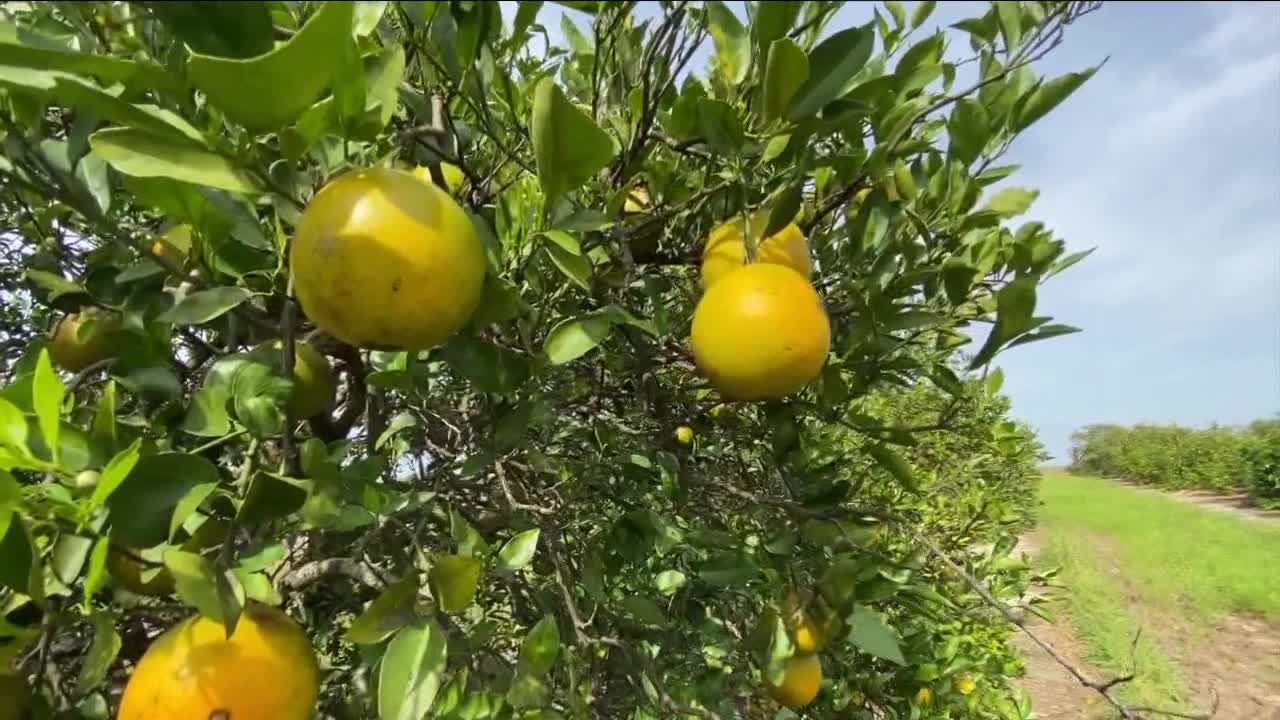PINELLAS COUNTY, Fla. — Florida Agriculture leaders are on the lookout for an invasive pest. They want to stop a tiny insect from having a huge impact on the fruits and vegetables we all love in Florida.
The invasive Oriental fruit fly (Bactrocera dorsalis) has been discovered in Pinellas County, specifically in Pinellas Park and St. Petersburg.
The Oriental fruit fly can attack up to 436 different types of fruits, vegetables and nuts. The fruit flies lay their eggs in fruits and vegetables. Within days, the eggs hatch and maggots keep the fruit from being edible or Florida’s produce from being sold in other states.

Leaders with the Florida Department of Agriculture and Consumer Services have put out 500 traps in Pinellas County and 56,000 traps across Florida to catch the Oriental fruit fly.
The invasive insect has been trapped in Florida several times since 1964 and has been eradicated each time.
Dr. Deby Cassill, a USF St. Petersburg Associate Professor of Integrated Biology first noticed traps hanging from a tree outside the Duke Energy Mahaffey Performing Arts Center in downtown St. Petersburg, off of 1st Street S. They caught her eye because she loves studying bugs.
“Even though I’m not an entomologist, I love insects,” Cassill explained.
Cassill said the Oriental fruit flies are larger than their native counterparts and can multiply quickly.
“They reproduce like crazy and they can have several generations of offspring in a month,” she elaborated.

Florida agriculture leaders have caught five of the fruit flies in Pinellas County but experts are working to get ahead of the pests before the population grows, which they say would have a major impact on fruits and veggies grown in Florida.
“Florida has a large fruit and vegetable growing opportunity and crops throughout the year. This could impact almost all of those,” said Bryan Benson who works at the Florida Department of Agriculture and Consumer Services.
The Oriental fruit fly is considered the most destructive fruit fly in the world.
“If established in the United States our fruit and vegetable industry would be horribly impacted,” Benson added.
Luckily, the traps and insecticide seem to be keeping the pest at bay.
For now, agriculture leaders are asking homeowners in Pinellas County not to bring any homegrown fruit or veggies to other areas. If you notice any larvae in your produce or fallen produce, double bag them and throw them out.
Fruit without the presence of larvae is safe to eat. Even with larvae, it is technically safe to eat, though it may not be pleasant, according to the Florida Department of Agriculture and Consumer Services.





